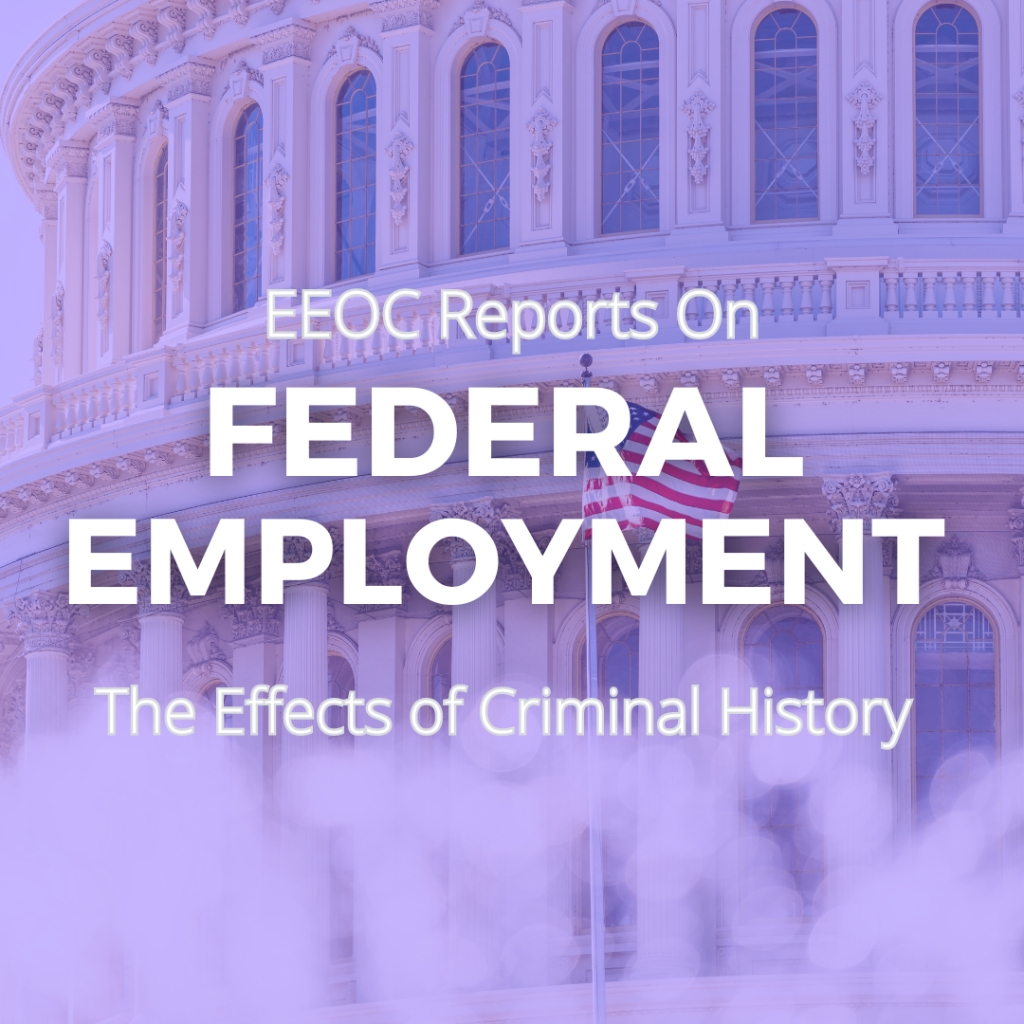The Equal Employment Opportunity Commission (EEOC) has issued two new reports discussing criminal records. Specifically, these reports address the impact these records can have on applicants’ chances of getting hired for federal employment. The EEOC released these reports shortly after the government released rules to restrict questions concerning criminal records.
These restrictions prevent government agencies from asking about an individual’s criminal record before making a conditional offer of employment. The two reports are “Second Chances Part I – Federal Employment for Workers with Past Arrests or Convictions” and “Second Chances Part II – History of Criminal Conduct and Suitability for Federal Employment.” Here is a summary of the two reports issued by the EEOC.
Second Chances Part I – Federal Employment for Workers with Past Arrests or Convictions
The first reported a lack of systematic data collection tracking the employment outcomes of previously incarcerated employees. The report used data from a nationally representative survey covering 2003 through 2017. According to the study, those with prior criminal records were roughly half as likely to gain federal employment as someone without a criminal record.
Furthermore, the federal government had fewer previously incarcerated employees than expected. The report revealed approximately 300,000 fewer people. Unfortunately, it could not adequately determine why previously incarcerated individuals experienced lower federal employment rates.
The Second Chances Part I recommended further studying federal employment practices. One suggestion included focusing on the barriers that formerly incarcerated individuals face. In addition, it suggested that the government research how different policies would help expand employment opportunities.
Second Chances Part II – History of Criminal Conduct and Suitability for Federal Employment
The Equal Employment Opportunity (EEO) laws do not ban federal employers from considering arrest or conviction records. Federal agencies can consider whether criminal or dishonest conduct makes an applicant unsuited for federal employment. However, criminal convictions do not automatically disqualify applicants from most federal jobs.
Furthermore, the EEOC laws prevent discrimination based on race, national origin, and other protected categories. Despite these protections, the EEOC found that background checks in recruitment and hiring display disproportionate practices. The most affected parties include African Americans and Latinos.
The second report “examin[ed] data from a survey on Federal sector suitability adjudication policies and practices.” It looked at federal background investigations conducted for civil service positions between the fiscal years 2018 and 2020. According to the findings, only unfavorable outcomes happened in adjudications with criminal conduct issues present. For example, 2% of the cases ended with the removal of such applicants or refusal to hire.
Another finding addressed favorable determinations. In such cases, more than three-fourths of the cases ended with permission to work for the federal government. These are just two of the report’s findings.
The following are several recommendations from the reports:
- “The Federal Government [should] widely publicize this report’s finding that Federal agencies are hiring persons with criminal conduct issues in their background checks.
- Federal agencies continue to assess the length of their suitability process and look for ways to streamline it.
- Federal agencies assess the results of exit surveys from appointees who resigned before receiving a suitability determination in cases where criminal conduct had been flagged as an issue.
- When conducting background checks, employers should take a holistic approach with consideration for mitigating circumstances.”
These reports show the federal government’s efforts to improve federal employment opportunities. Should the government follow the suggestions, previously incarcerated individuals may obtain more significant opportunities on the federal level.
